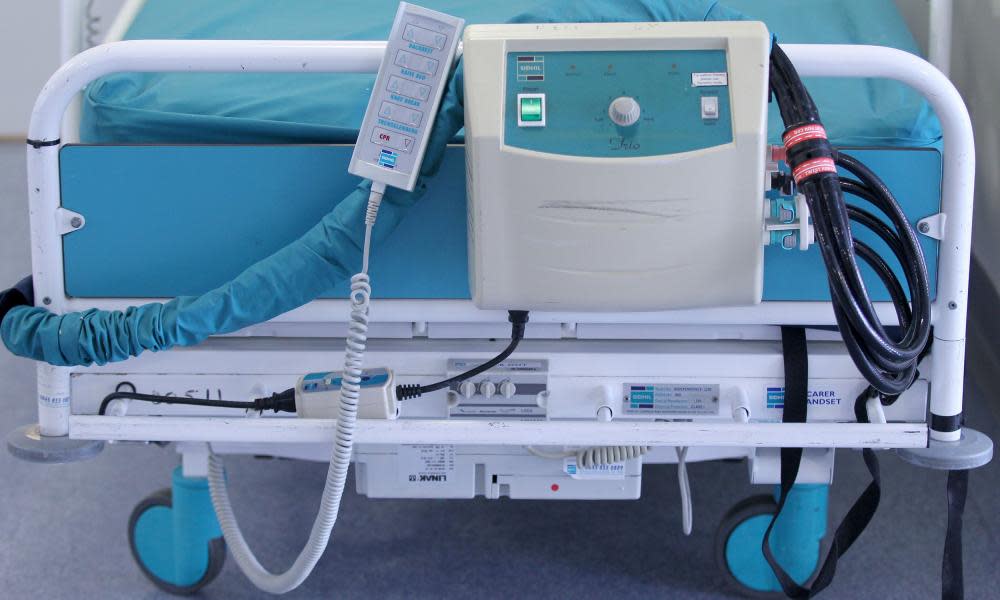Revealed: NHS England sent 154 eating disorder patients to Scotland

A severe shortage of beds for patients with life-threatening eating disorders has forced the NHS to send more than 100 patients from England to Scotland for treatment since 2016, the Guardian can reveal.
At least 154 vulnerable patients, mainly women and some teenagers, had to travel hundreds of miles from their homes in order to receive residential care in Glasgow and Edinburgh, costing the NHS millions of pounds annually.
The data, obtained under freedom of information from NHS England, is the first of its kind to be revealed. Official figures showed that in 2017-18, caring for English eating disorder patients in Scotland cost £5.1m, compared with £4.5m the year before and £2.2m in 2014-15.
Mental health experts expressed alarm and blamed the NHS’s use of cross-border care on an acute lack of both beds in mental health units and specialist staff to look after patients. They said care further from home could damage patients’ chances of recovery, increase their sense of isolation through the separation from their families and even raise their risk of dying.
Norman Lamb, the MP for North Norfolk and a mental health minister in the Conservative-Liberal Democrat coalition government from 2012-15, said: “These figures are very worrying … detaching people from friends and family can, in itself, be traumatising and damaging.
“Much more needs to be done to ensure people experiencing an eating disorder can get speedy access to support to stop the condition deteriorating.”
Natasha Devon, a mental health campaigner who works with young people in schools, said a crucial part of eating disorder recovery was being able to stay connected to a life free from the illness.
“Being sent away from friends, family and school, and surrounded with other people who also have the illness, thus normalising it, is the worst option for eating disorder treatment,” she said. “It also causes significant distress and disruption to the lives of parents, potentially impacting their mental health negatively, too.”
The figures follow a surge in hospital admissions for eating disorders. Hospital attendances with a primary or secondary diagnosis of an eating disorder reached a peak of 13,885 in the year to April 2017, up from 7,260 in 2010-11.
NHS England policy states that in order to maximise the chances of recovery, “patients should be treated in a location which helps them to retain the contact they want to maintain with family, carers and friends, and to feel as familiar as possible with the local environment”.
Beat, the UK’s leading eating disorder charity, said the Scottish service was commissioned as spare capacity for people to be referred to when regional NHS England managers could not find a suitable bed in their area.
Tom Quinn, Beat’s director of external affairs, said: “Forcing patients to travel far from home for treatment only adds to the extreme distress that eating disorders cause for sufferers and their families. The government and NHS have to ensure that all local services have the funding and resources they need to deliver treatment for patients in their area.”
NHS England figures showed that in 2016-17, the first year of recording this information, 64 patients were sent to private facilities – Priory hospital Glasgow and Huntercombe hospital in Edinburgh. A year later, the number rose to 67, and so far this year, at least 23 patients have made the long journey for treatment.
Data showed women, who are more likely to experience eating disorders, were correspondingly more likely to be sent to Scotland. NHS England figures, for example, showed 20 women were sent to Scotland in the year to August, compared with a number of men that could not be specified as it was less than or equal to five.
The dataset included an asterisk to replace figures when the number was too small and could identify patients. In these incidents, the Guardian counted it as one, meaning the actual tally was likely to be higher than calculated.
The Labour MP Luciana Berger, the president of the Labour Campaign for Mental Health, described the figures as a “damning indictment of the government’s continuing failure to address inappropriate out-of-area placements”.
Berger said the government had pledged to eliminate out-of-area placements for adults by 2020-21, but these figures “disgracefully show the number of vulnerable patients being sent far away from home for a bed is instead increasing”.
She added: “The government must deliver on their stated commitment to end inappropriate out-of-area placements for adults by 2020-21, by providing ringfenced funding for specialist treatment for eating disorders across all areas of England without delay.”
A spokesperson for the Department of Health and Social Care said: “We want patients to be treated closer to home – that’s why the NHS is opening more specialist beds and we are committed to eliminating inappropriate placements by 2020-21.
“We’re transforming services supported by record amounts of funding, and ambitious plans to increase the workforce, and as part of our long-term plan for the NHS, we will announce more on how we will improve mental health later this year.”

 Yahoo News
Yahoo News 
